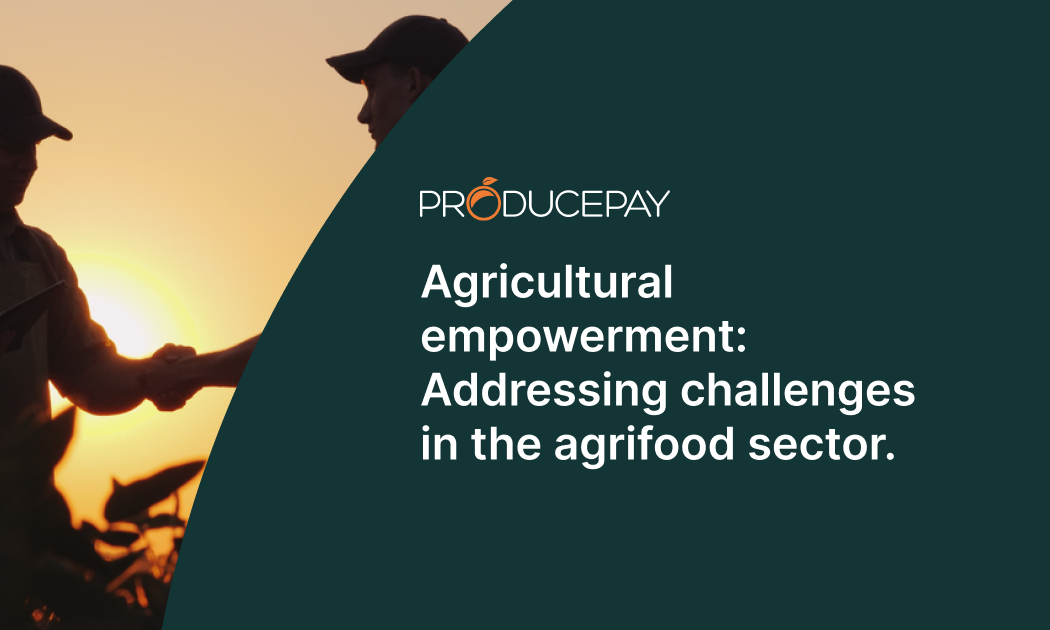
Agricultural empowerment: Addressing challenges in the agrifood sector.
Sustaining global economic prosperity and food security hinges on offering continued support to growers. While the worldwide demand for food continues to increase, farmers face significant challenges that directly impact their ability to maintain sustainable and high-yield food production.
Despite these challenges, there are opportunities to empower farmers to overcome obstacles, such as climate change and population growth, and transform the global agrifood system. This journey towards a more robust and equitable future requires integrating revolutionary innovations and resilient agricultural production techniques.
World Agriculture Day, observed on September 9, not only allows us to celebrate and acknowledge the invaluable contributions of farmers but also encourages reflection on the vital importance of supporting their endeavors and fostering positive change within the industry. This day serves as a reminder of the symbiotic relationship between farm work and the collective well-being of humanity.
It’s essential to recognize that the journey towards more resilient and equitable agrifood systems requires collective engagement. As farmers tackle various challenges, societies, governments, and organizations must collaborate, offer essential support and create innovative solutions.
Key challenges facing farmers
Farmers must confront a range of challenges that impact their capacity to ensure food security and sustainable development, including:
Climate variability
Unpredictable fluctuations in climatic conditions, including droughts, floods, and extreme temperature shifts can adversely impact agricultural production and food security.
Weather events can disrupt crop yields, compromise crop quality, impact water availability, and destabilize the food supply chain.
Constant adaptation to these changing conditions necessitates additional investments in climate-resilient management techniques and technologies.
Exploring sustainable agricultural practices and implementing early warning systems is essential to mitigate the detrimental effects of climate variability on agriculture.
Markets and marketing
Integration into increasingly complex supply chains exposes farmers to volatile prices and unfavorable trade practices. Limited negotiating skills and restricted access to information can undermine their profitability and financial stability. Inadequate storage and transportation infrastructure further exacerbate this situation.
Addressing this challenge requires farmers to access real-time market data, and advocate for policies that promote equitable distribution of benefits throughout the supply chain.
Natural resources scarcity
The surging demand for food contrasts with dwindling arable land and freshwater resources, compounded by soil degradation. Intensifying competition for these vital resources negatively impacts production and the sustainability of the agricultural system.
Farmers must adopt soil and water conservation practices and employ precision farming techniques to optimize resource use. To meet this challenge, it is imperative to develop resilient crop varieties and agricultural systems.
Access to technology and knowledge
Disparities in the availability of modern technology and technical advice are detrimental to agricultural productivity and the adoption of sustainable practices.
The digital divide and lack of agricultural education can hinder the effective implementation of innovative methods in less developed countries.
Investing in agricultural training, rural extension and equitable access to advanced agrarian technologies becomes essential in addressing this challenge. Collaborative efforts involving governments, organizations, and businesses are vital for democratizing access to these crucial resources.
Economics and financial sustainability
Fluctuations in agricultural commodity prices, high input costs and limited credit access can compromise grower profitability and their ability to invest in their operations.
The pressure to maintain low consumer prices often leaves farmers with narrow profit margins. A lack of economic diversification and suitable financial instruments further complicates risk management.
Addressing this challenge requires policies that advocate for fair prices, inclusive financial services, and business management training. Additionally, investment in rural infrastructure is critical for enhancing marketing and competitiveness.
Empowering farmers
Empowering farmers to become catalysts for change within their communities and beyond addresses immediate challenges and lays the foundation for enduring transformation.
In order to boost productivity and tackle challenges, growers must be given the resources to adopt climate-resilient agricultural practices, implement techniques for conserving soil and water, and obtain access to cutting-edge agricultural technologies, including precision agriculture and biotechnology.
Empowerment also entails fostering their active involvement in markets and marketing. Encouraging the creation of agricultural cooperatives and simplifying access to shorter, more direct value chains can aid in securing better economic returns for their products and reducing dependence on intermediaries.
Ultimately, the empowerment of farmers goes beyond merely addressing their challenges; it catalyzes positive transformation in the agri-food sector.
Equipping farmers with essential knowledge, tools, and resources gives them the ability to lead the transition toward more sustainable, resilient, and equitable agricultural systems.
ProducePay’s role in empowering farmers
ProducePay is a vital catalyst for providing farmers with the resources and working capital they need to effect positive changes in the agricultural system.
Through its comprehensive approach, ProducePay tackles key obstacles and offers tangible solutions that fortify farmers across various fronts:
- Facilitating market participation: ProducePay connects farmers directly to markets and buyers through its Marketplace, eliminating intermediaries and reducing price volatility. The platform provides real-time market information, enabling farmers to decide which crops to grow for maximum economic return.
- Enhancing financial sustainability: ProducePay helps farmers manage economic risks associated with price fluctuations and high input costs through innovative financial solutions. The platform grants access to financing that supports farmers’ financial stability, enabling long-term planning and diversified income sources.
- Assured cash flow: ProducePay extends financial options to farmers based on the future sales of their crops, ensuring a predictable and stable income. This arrangement allows them to effectively sustain their operations without being impacted by seasonal income fluctuations.
Sources: Naciones Unidas, Greenfacts, Perfect Daily Green, Revista Mercados

